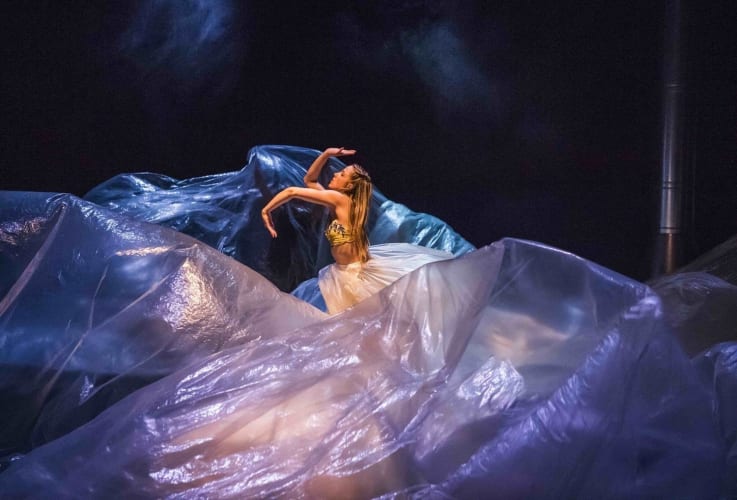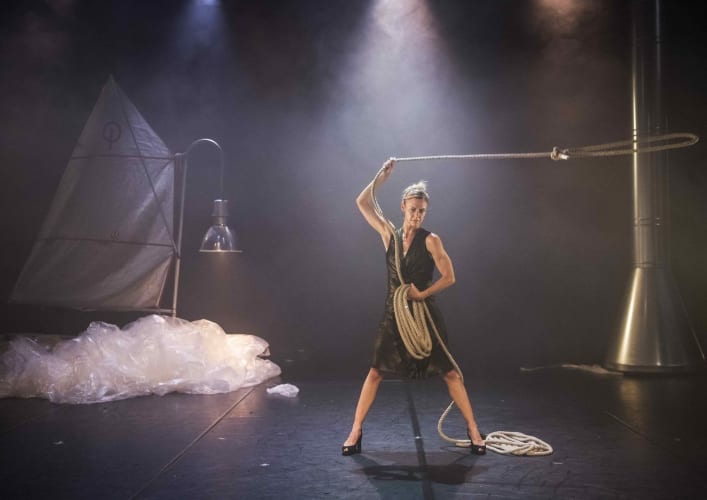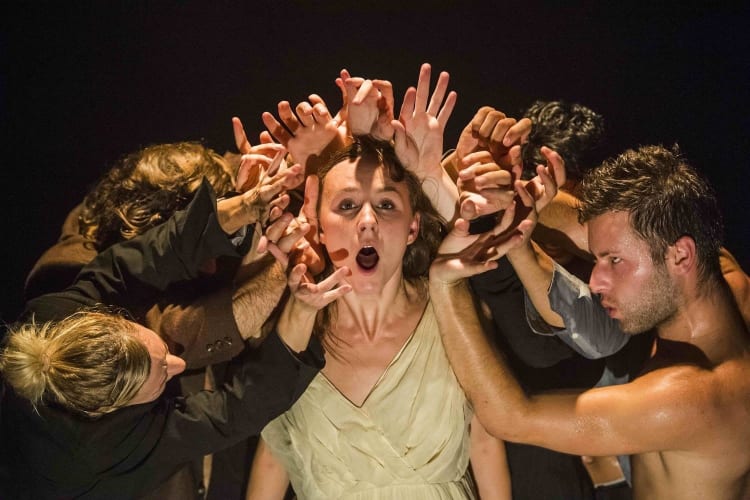Celebrating twenty years of creativity, Jasmin Vardimon has delighted countless audiences with her impassioned choreography. Ranging from conceptual to narrative, the pieces are always thought-provoking and filled with demanding body work which leaves you tired just watching.
Medusa is no exception—a highly conceptual piece focused on the idea of transformation, the gaze of Medusa and the power she wields is also proposed again through the male gaze in a feminist provocation.
Her piece is a fluid collection of ideas, the movement always seamlessly morphing between different viewpoints on the myth, even if the ideas flow less cohesively.
Paramount is the dancers awe-inspiring physical dexterity and strength, coupled with grace and lightness of movement. The company devises its work alongside Vardimon and they certainly don’t shy away from physical exertion. This dance theatre piece is rarely in stasis and, to convey the power wielded by others over the body, these dancers drop to the floor countless times, are bent over double in subversion and whirl around the stage leaping and rolling.
The performance is flawless. A breathtaking moment that could be translated straight into the next Cirque du Soleil show is a nail-biting dodge of a whirling hoop. Olga Clavel Gimeno wields her net on the end of a ten-foot pole, which she arcs around herself. She takes no prisoners; the rest of the company leap or roll out out the way in a constant moving circle, just a hair's breadth from being sent flying by the dangerous, fast-moving hoop. The kind of split-second accuracy required is shown time and time again throughout Medusa.
Awe-inspiring movement aside, this piece is chock-full of visual ideas to provoke and plenty of stimuli that leave me guessing at meanings. I delight in the cleverly layered themes, but at times there is simply too much thrown at us.
Vardimon opens with an oceanic theme: a rippling stage of plastic reveals an aquatic Medusa. The plastic morphs into packaging, four mannequin girls are checked over by prospective buyers and continue to be manhandled through the piece.
Groping hands abound; what starts as light fondling is transformed into molesting hands all over Medusa’s body before the molester’s fingers transform into the rippling snakes of her hair.
There is plenty of peacocking from the men—Joshua Smith’s rare moment of text asks whether women can ever break free of man’s shadow and, whilst he delivers his monologue, a female dancer mirrors his every move at 90 degrees from the floor. Donning giant antlers, the men square up to one another, rutting like stags to impress their women.
The men become animalistic, fighting over Medusa, before the whole company joins in, grappling and ripping at her clothing. Vardimon’s dancers are near contortionists, arching themselves in deep back bends and flung into the air as if weightless.
The post-structural choreography shaping means you are just entering a mythical world and grappling with the power dynamics of Athena or Medusa before being jarred into a modern scene displaying a man with a rubbish bin jammed onto his head, spewing garbage. This secondary layer of climate change might be explained by Vardimon in her programme notes, but it feels an unrelated and undeveloped tangent next to the feminist exploration of power.
It feels as if Vardimon started out making a piece abut Medusa and ended up somewhere very different. That journey is exhilarating physically for the audience, but the overcrowding of ideas and visual imagery actually ends up with nothing hitting home as hard as it might.


